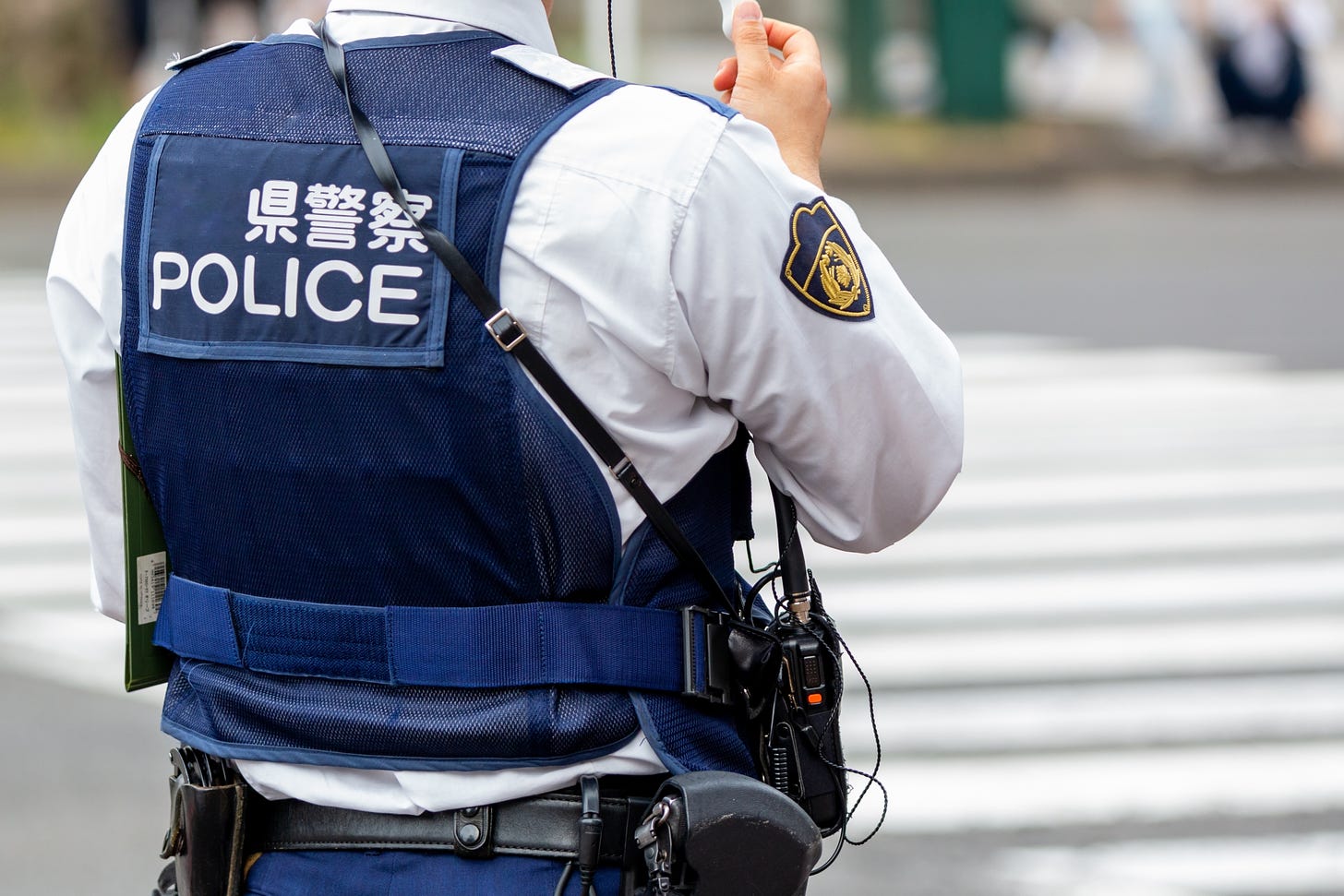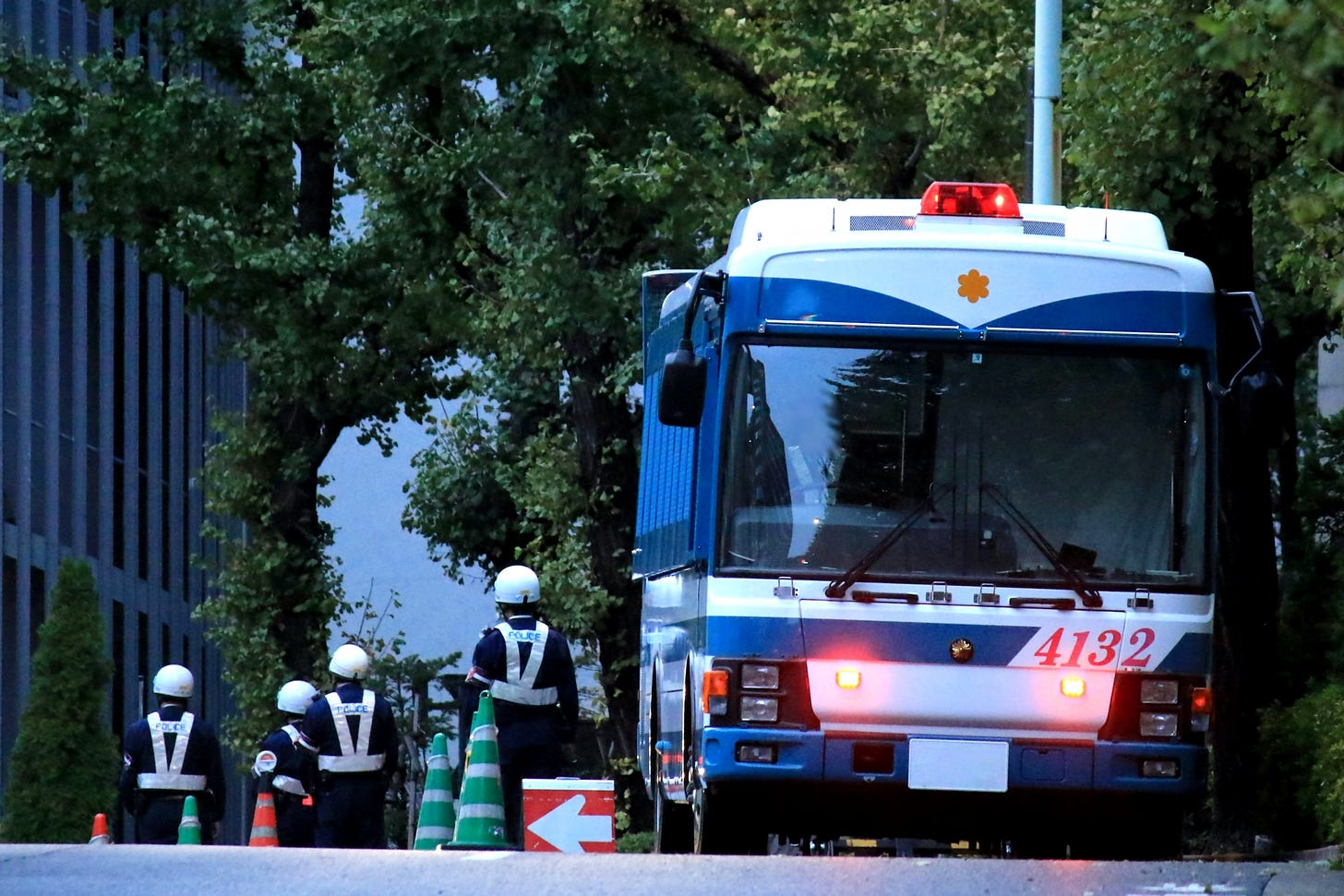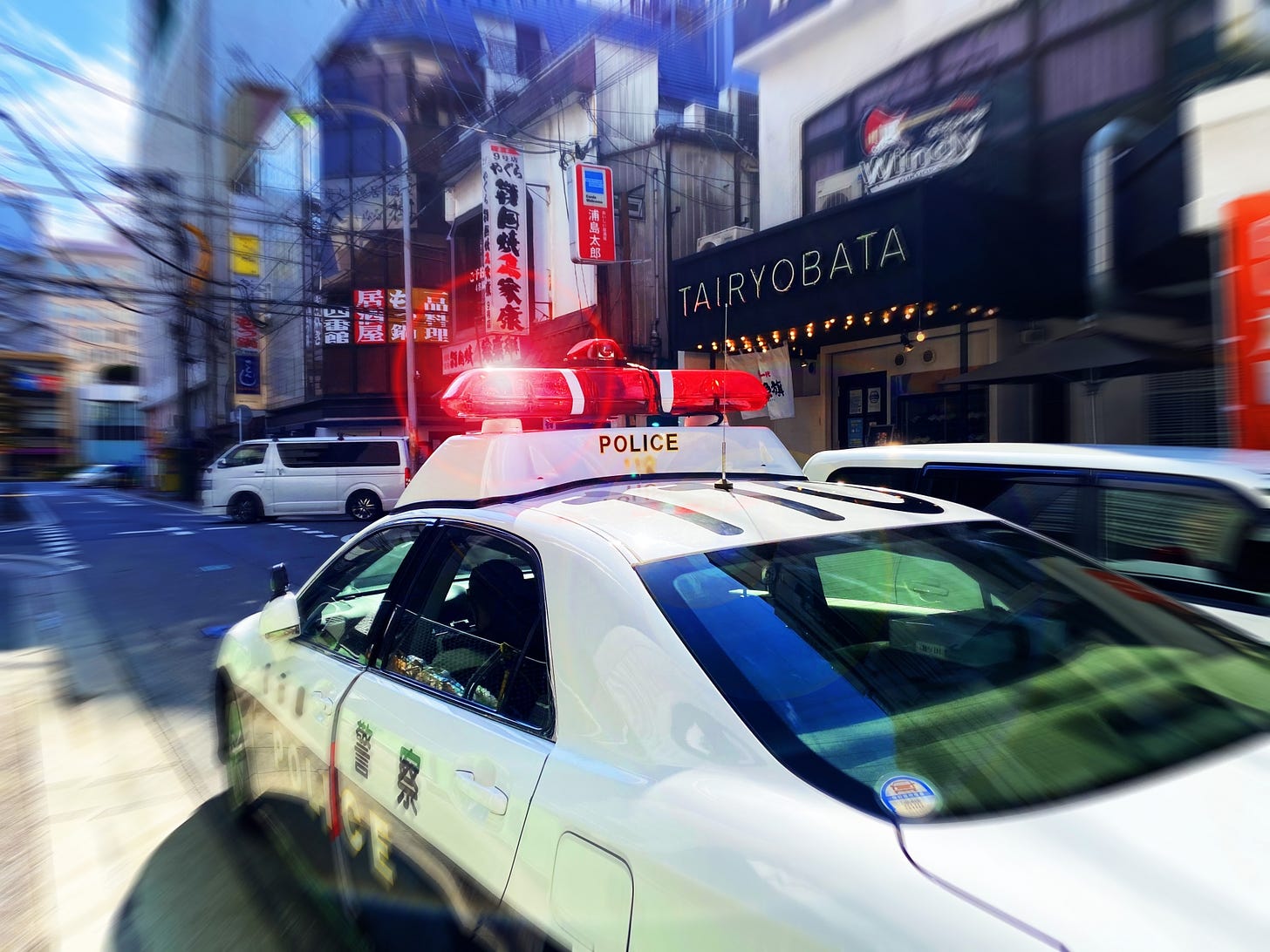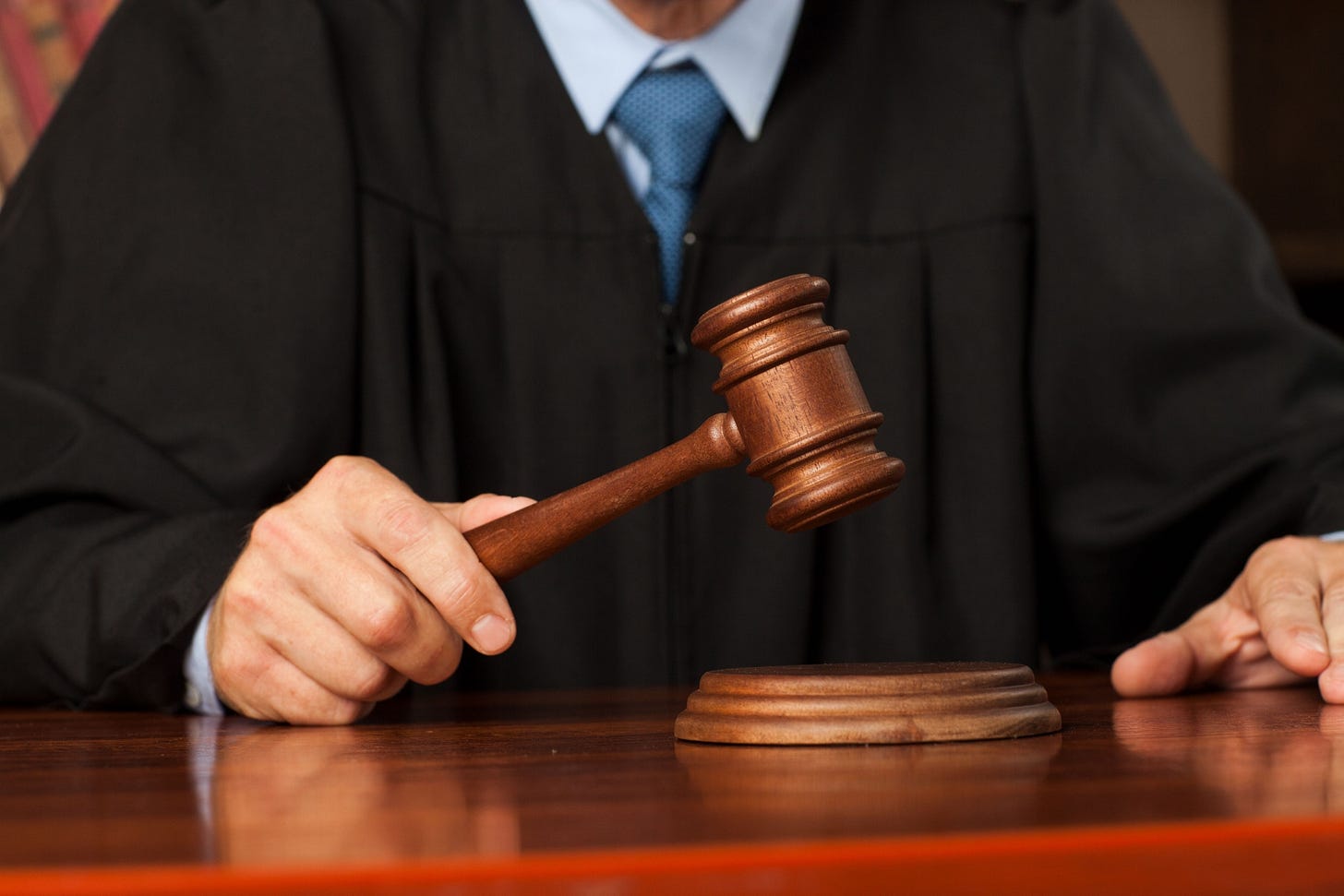

Discover more from Real Gaijin
Three Black and Brown Foreigners to Sue Japanese Police for Alleged Racial Profiling
The plaintiffs allege that they were repeatedly interrogated and harassed by the police because of their race, color, and ethnicity.

What’s new: Three foreign nationals who were repeatedly questioned by police officers on the basis of their race, color, nationality, etc., will soon file a lawsuit with the Tokyo District Court seeking compensation from the central government and others, claiming that the police officers discriminated against them and violated the Constitution. According to the plaintiffs' lawyer, the lawsuit is being filed by three men of foreign origin living in Tokyo, Aichi and other prefectures, all of whom claim to have been repeatedly questioned by police on the basis of their race, skin color, ethnic roots and other factors, and to have felt pain and distress.
"Being treated as criminals or potential criminals by police officers based on the appearance of being 'foreign' or having 'foreign roots' is a serious violation of human rights that undermines human dignity." - Lawyers for the plaintiffs
The defense lawyers argued that the questioning of the plaintiffs on the basis of their skin color and "foreign-looking" appearance violated the Constitution, which provides for equality before the law. They also claim that the interrogation violated the Convention on the Elimination of All Forms of Racial Discrimination and are seeking compensation from the government and other entities.
Why it matters: Racial profiling, the practice of selecting a person for questioning or interrogation based on race, color, or nationality, has become an issue overseas, and the illegality of such practices is expected to be challenged in Japan. Racial profiling is an international issue, with the UN Committee on the Elimination of Racial Discrimination recommending the formulation of guidelines to prevent such discrimination.
"In Japan, there have been no court cases challenging the illegality of questioning, known as racial profiling, and this is believed to be the first time such a case has been brought to court. We hope that the trial will be an opportunity for the police to consider whether their practices are in line with the standards of the international community. - Lawyer Taiki Taniguchi, representing the plaintiffs
Especially since the number of non-Japanese residents in Japan now exceeds 3.2 million, or well over 2% of the total population, it is necessary to treat human rights guaranteed by the Constitution properly; there should be no room for racial profiling.
Go deeper: The plaintiffs are three individuals in their 20s to 50s.
Case of Zain: Zain, one of the plaintiffs, was born in Pakistan, came to Japan at the age of 8, and became a Japanese citizen at the age of 13. Zain claims that he has been repeatedly questioned by the police about his occupation because of his "foreign-looking" appearance. He estimates that he has been grilled by the police about 15 times.
Case of Mathew: Mathew, 53, one of the plaintiffs, claims that over the course of more than 20 years of repeated police interrogation, he has become a recluse in his home. Matthew, who was born in a South Pacific island nation, married his Japanese spouse in 2002, immigrated to Japan and obtained permanent resident status. He says he has been questioned by the police about his occupation around 100 times and has been questioned twice in one day on four occasions.
"I was afraid to go out because of the constant barrage of questions from the police." - Plaintiff Mathew
Over the past 20 years, he has been repeatedly questioned by police officers at railway stations and on the streets, sometimes twice a day. On one occasion, Mathew was surrounded by four or five police officers in front of his house, and when he did not respond to their questioning, he was taken to the police station for interrogation. Three years ago in October, while driving to work in Tokyo with his wife, he was stopped by a police car with its siren blaring. Matthew asked, "Why did you stop me?” The policeman replied, "Because it is rare for foreigners to drive in this area.” At that point, Matthew said, "I didn't think it was a valid reason, and I thought the police were using their power as they pleased. It was racial discrimination, abuse of their position," he said. After being repeatedly questioned, Matthew became afraid to go outside for a time and tended to stay indoors.
"I always felt that the police officers were watching me and invading my privacy. It happened so often that I felt like, 'Why just me?'" - Plaintiff Mathew
On why he decided to become a plaintiff in the trial, he said, "I think there are many people suffering from the same problem. I hope the trial will help us find a solution that will allow us all to live in peace.”
Case of Maurice: Maurice, an African American who has lived in Japan for almost 10 years and is a permanent resident, was stopped and questioned by a police officer in April 2021 when he left his home on his motorcycle, although there was no traffic violation. He has been treated similarly about 16 to 17 times.
By the numbers: More than 60% of foreigners and those with foreign parents have been questioned by the police in the past 5 years. In 2020, the UN Committee on the Elimination of Racial Discrimination recommended that countries establish guidelines to prevent racial profiling. In response to this situation, the Tokyo Bar Association conducted an online survey of foreign nationals living in Japan and Japanese nationals with foreign parents, receiving responses from approximately 2,100 people.
According to the survey, 62.9%, or 1,318 people, were apparently randomly questioned by the police. Of those questioned, 50.4% were questioned 2 to 5 times, 10.8% were questioned 6 to 9 times, and 11.5% were questioned more than 10 times.
"I was investigated like a criminal in front of many people” and “I was suspected of having drugs just because of my appearance.” – Anonymous write-in comments
When asked if they thought the police officers who approached them knew from the beginning that they were of foreign origin, 85.4% of respondents said they thought so. More than 90% of respondents cited "physical characteristics" as the reason. Others responded that they "spoke in a language other than Japanese" or "carried magazines or books in a language other than Japanese.” In the open comments section, there were several notes complaining about discrimination.
What’s next: It is now up to the courts to determine guilt and appropriate punishment. The three plaintiffs will soon file a lawsuit at the Tokyo District Court against the national government, the Tokyo Metropolitan Government, and Aichi Prefecture, seeking compensation of 3 million yen (about US$20,250) each, claiming that the treatment was racially discriminatory and in violation of the Constitution.
Links to Japanese Sources: https://www3.nhk.or.jp/news/html/20240124/k10014331901000.html and https://news.yahoo.co.jp/articles/b8f8f7ae274cf16b4c9adc562ee551246125fcfa
#racialprofiling #racialdiscrimination #interrogation #prejudice #人種#国籍#職務質問 #肌の色 #レイシャルプロファイリング #外国人ふう #人種差別 #在日外国人 #尋問 #職務質問
Please note that you can subscribe to Real Gaijin for free. If you are so inclined, you can also purchase an annual subscription for a relatively small fee.
However, I understand that even the lowest level of annual subscription allowed by Substack may seem too high for many. If you just want to buy a coffee for Real Gaijin (or maybe a green tea), you can also make a small donation here:
https://buymeacoffee.com/realgaijin
All levels of support - including just liking a particular article and/or leaving a comment - are very welcome. Thanks again for reading.
While Real Gaijin lives in Substack, you can also find Real Gaijin on a few other platforms (listed in alphabetical order).
https://www.instagram.com/real_gaijin_on_substack/
https://www.threads.net/@real_gaijin_on_substack
https://www.tiktok.com/@real.gaijin
https://www.youtube.com/@RealGaijin
Subscribe to Real Gaijin
Unveiling the Real Japan: An American Expat's Inside Look | Hot takes, commentary, and unfiltered insights on life as a foreigner in Japan.


























I have had an incredibly terrible time with the police. I get stopped roughly 1 time per week and have also had incidences were it has happened more in one day.
One time, I was walking down the street and heard running behind me. The police caught up with me just as I was about to enter my apartment and 5 officers proceeded to surround me not allowing me to go into my home.
They tried to search my bag and pat me down - even when I asked them to show their badges and if they had a warrant - they ignored me.
(yes I have this on video)
There was also a Japanese guy taking a piss against a wall when they ran past (which is illegal) - I was just quietly walking home. Yet they chose to target me.
I really hope these guys win their case and I hope it empowers others to report and do the same.
Many foreigners come to japan to live - they also behave better than most japanese (not loud, not drunk, not dropping litter, not pissing against the walls) - we just want to live quietly and enjoy the beauty of japan.
More western garbage making it's way into Japan by the day. These people were more than likely stopped for a good reason. Foreigners from third world countries never assimilate into society and then cry "racism" over everything